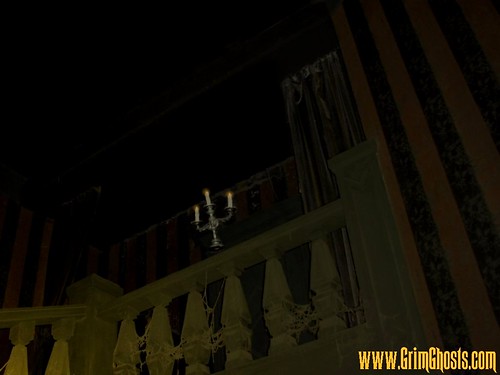Holding Court
There's a crackdown over Miers, not a "crackup."
BY RUSH LIMBAUGH
Monday, October 17, 2005
I love being a conservative. We conservatives are proud of our philosophy. Unlike our liberal friends, who are constantly looking for new words to conceal their true beliefs and are in a perpetual state of reinvention, we conservatives are unapologetic about our ideals. We are confident in our principles and energetic about openly advancing them. We believe in individual liberty, limited government, capitalism, the rule of law, faith, a color-blind society and national security. We support school choice, enterprise zones, tax cuts, welfare reform, faith-based initiatives, political speech, homeowner rights and the war on terrorism. And at our core we embrace and celebrate the most magnificent governing document ever ratified by any nation--the U.S. Constitution. Along with the Declaration of Independence, which recognizes our God-given natural right to be free, it is the foundation on which our government is built and has enabled us to flourish as a people.
We conservatives are never stronger than when we are advancing our principles. And that's the nature of our current debate over the nomination of Harriet Miers. Will she respect the Constitution? Will she be an originalist who will accept the limited role of the judiciary to interpret and uphold it, and leave the elected branches--we, the people--to set public policy? Given the extraordinary power the Supreme Court has seized from the representative parts of our government, this is no small matter. Roe v. Wade is a primary example of judicial activism. Regardless of one's position on abortion, seven unelected and unaccountable justices simply did not have the constitutional authority to impose their pro-abortion views on the nation. The Constitution empowers the people, through their elected representatives in Congress or the state legislatures, to make this decision.
Abortion is only one of countless areas in which a mere nine lawyers in robes have imposed their personal policy preferences on the rest of us. The court has conferred due process rights on terrorists detained at Guantanamo Bay and benefits on illegal immigrants. It has ruled that animated cyberspace child pornography is protected speech, but certain broadcast ads aired before elections are illegal; it has held that the Ten Commandments can't be displayed in a public building, but they can be displayed outside a public building; and the court has invented rationales to skirt the Constitution, such as using foreign law to strike down juvenile death penalty statutes in over a dozen states.
For decades conservatives have considered judicial abuse a direct threat to our Constitution and our form of government. The framers didn't create a judicial oligarchy. They created a representative republic. Our opposition to judicial activism runs deep. We've witnessed too many occasions where Republican presidents have nominated the wrong candidates to the court, and we want more assurances this time--some proof. The left, on the other hand, sees the courts as the only way to advance their big-government agenda. They can't win national elections if they're open about their agenda. So, they seek to impose their policies by judicial fiat. It's time to call them on it. And that's what many of us had hoped and expected when the president made his nomination.
Some liberal commentators mistakenly view the passionate debate among conservatives over the Miers nomination as a "crackup" on the right. They are giddy about "splits" in the conservative base of the GOP. They are predicting doom for the rest of the president's term and gloom for Republican electoral chances in 2006. As usual, liberals don't understand conservatives and never will.
The Miers nomination shows the strength of the conservative movement. This is no "crackup." It's a crackdown. We conservatives are unified in our objectives. And we are organized to advance them. The purpose of the Miers debate is to ensure that we are doing the very best we can to move the nation in the right direction. And when all is said and done, we will be even stronger and more focused on our agenda and defeating those who obstruct it, just in time for 2006 and 2008. Lest anyone forget, for several years before the 1980 election, we had knockdown battles within the GOP. The result: Ronald Reagan won two massive landslides.
The real crackup has already occurred--on the left! The Democratic Party has been hijacked by 1960s retreads like Howard Dean; billionaire eccentrics like George Soros; and leftwing computer geeks like Moveon.org. It nominated John Kerry, a notorious Vietnam-era antiwar activist, as its presidential standard-bearer. Its major spokesmen are old extremists like Ted Kennedy and new propagandists like Michael Moore. Its great presidential hope is one of the most divisive figures in U.S. politics, Hillary Clinton. And its favorite son is an impeached, disbarred, held-in-contempt ex-president, Bill Clinton.
The Democratic Party today is split over the war and a host of cultural issues, such as same-sex marriage and partial birth abortion. It wants to raise taxes, but dares not say so. It can't decide what message to convey to the American people or how to convey it. And even its once- reliable allies in the big media aren't as influential in promoting the party and its agenda as they were in the past. The new media--talk radio, the Internet and cable TV--not only have a growing following, but have helped expose the bias and falsehoods of the big-media, e.g., Dan Rather, CBS News and the forged National Guard documents. Hence, circulation and audience is down, and dropping.
The American left is stuck trying to repeat the history of its presumed glory years. They hope people will see Iraq as Vietnam, the entirety of the Bush administration as Watergate and Hurricane Katrina as the Great Depression. Beyond looking to the past for their salvation, the problem is that they continue to deceive even themselves. None of their comparisons are true. Meanwhile, we conservatives will continue to focus on making history.











